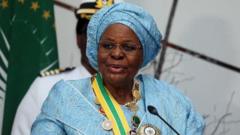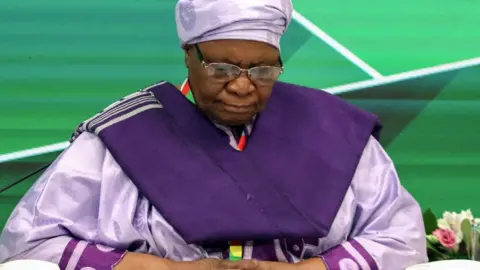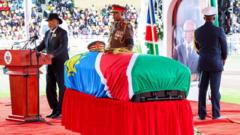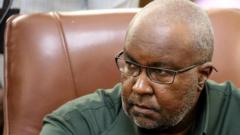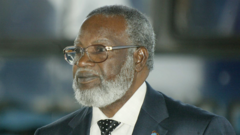In her first state of the nation address, President Nandi-Ndaitwah, who made history as Namibia's first female leader, declared an end to tuition and registration fees at all public universities and technical colleges, starting from 2026. This ambitious initiative responds to longstanding student activism in Namibia, echoing similar protests in neighboring South Africa, where the #FeesMustFall movement gained considerable traction.
She emphasized that the new plan would be rolled out gradually, with the primary financial responsibility remaining with families for accommodation and related expenses. Nandi-Ndaitwah indicated that the funding for this initiative would be derived from existing subsidies allocated to public universities and from the national student financial aid scheme. However, she cautioned that there would not be significant increases in funding, prompting skepticism about the actual implementation of the program.
Reactions from student organizations have been mixed. While some welcomed the announcement, others, like the Affirmative Repositioning Student Command (ARSC), labeled it as vague and potentially unattainable. The ARSC raised pertinent questions regarding the eligibility criteria for students—whether it would include postgraduates or only undergraduates—and pointed to uncertainties about how the initiative would be funded. These concerns were echoed by economist Tannen Groenewald, who warned that without additional financial backing, universities might limit student admissions.
Historically, similar initiatives in South Africa led to constraints that excluded many potential students classified as "missing middle," who do not qualify for financial aid but struggle to pay tuition fees. As Namibia gears up for this significant educational reform, the real challenge lies in ensuring all prospective students can successfully benefit from the government's promise of free higher education.
She emphasized that the new plan would be rolled out gradually, with the primary financial responsibility remaining with families for accommodation and related expenses. Nandi-Ndaitwah indicated that the funding for this initiative would be derived from existing subsidies allocated to public universities and from the national student financial aid scheme. However, she cautioned that there would not be significant increases in funding, prompting skepticism about the actual implementation of the program.
Reactions from student organizations have been mixed. While some welcomed the announcement, others, like the Affirmative Repositioning Student Command (ARSC), labeled it as vague and potentially unattainable. The ARSC raised pertinent questions regarding the eligibility criteria for students—whether it would include postgraduates or only undergraduates—and pointed to uncertainties about how the initiative would be funded. These concerns were echoed by economist Tannen Groenewald, who warned that without additional financial backing, universities might limit student admissions.
Historically, similar initiatives in South Africa led to constraints that excluded many potential students classified as "missing middle," who do not qualify for financial aid but struggle to pay tuition fees. As Namibia gears up for this significant educational reform, the real challenge lies in ensuring all prospective students can successfully benefit from the government's promise of free higher education.

